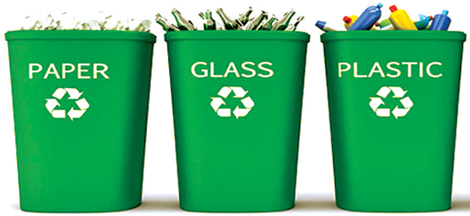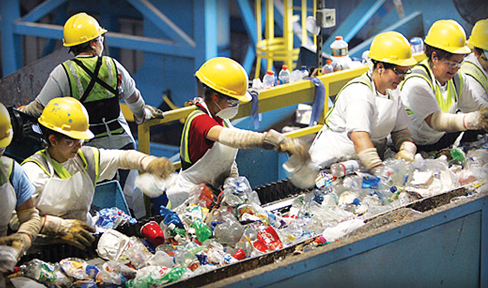Good environmental management, vital to boost hotel industry
by Kanchana Wickramasinghe
With the tourism sector in Sri Lanka recording remarkable growth in
the recent past, it is imperative to ensure such growth is
environmentally sustainable.
 In this regard, accommodation should receive foremost attention given
its expansion in terms of investments in new hotels and refurbishment of
hotels in the country. In this regard, accommodation should receive foremost attention given
its expansion in terms of investments in new hotels and refurbishment of
hotels in the country.
Around 37 registered hotels have been added between 2009 and 2013,
according to the statistics of Sri Lanka Tourism Development Authority.
Adoption of good environmental management practices is taking place
in the hotel industry on a voluntary basis.
It is important to understand what motivates hotels to adopt good
environmental management practices and identify barriers to its adoption
so that such activities could be encouraged.
A recent IPS study looked at the adoption of good energy, water and
waste management practices in hotels in Sri Lanka. The findings of the
study were based on econometric analysis using data gathered through a
comprehensive survey of registered hotels in the Western Province, which
has the highest number of hotels at provincial level.
On average, the study found that 7.81 good environment practices are
in place.
Of the good environmental management practices, those relating to
energy were the most commonly adopted followed by water, solid waste and
waste water practices.
It was interesting yet not surprising to note that, comparatively
large hotels (with more than 50 rooms) perform better than their smaller
counterparts. For example, the total number of good environmental
management practices (energy + water + waste) is around 9.3 in large
hotels compared to the figure of 5.6 in small hotels.
Energy management
Most commonly adopted energy management practices include the use of
energy efficient lighting methods (88%), use of solar power (69%) and
key switches (60%).
However, the contribution of each practice towards energy savings
depends on the intensity of adoption. For instance, possible savings due
to energy efficient lighting is dependent on the proportion of energy
efficient bulbs used in a hotel.
The study also found that dual flush toilets (79%) and linen and
towel reuse (56%) are most common water management practices among the
hotels that participated in the survey. Some of the water management
practices need the support of customers to save the amount of water
consumed. For instance, correct handling of dual flush toilets, linen
and towel re-use need customer's involvement.
However, other water management practices, such as low flow showers
and taps, re-use of treated waste water and sensors in toilets directly
lead to water savings, irrespective of customer involvement.
In terms of solid waste management, over 65 percent of the hotels'
waste is collected by the Municipal Council. Good solid waste management
practices include composting (22%), recycling (22%) and solid waste
segregation (18%).
In addition, the study looked at waste water management, and found
that 42 percent of the hotels have sewerage treatment plants.
Good practices
The study assessed factors which determine the number of good
practices in energy, water, and waste management adopted in hotels.
Accordingly, the size of the hotel, percentage of guests for leisure
purposes, number of employees per room, and the location of the hotels
determine the adoption of good environmental management practices.
Also, hotels that have undergone capacity building, training and were
provided awareness support, demonstrated better environment management
practices.
 An important finding of the study is that the barriers to adopting
good environmental management practices are not the same among small and
large hotels. An important finding of the study is that the barriers to adopting
good environmental management practices are not the same among small and
large hotels.
The most commonly observed barrier for the large hotel category is
the perception that the cost of adopting good practices exceeds the
benefits.
Under the small hotel category, the most observed barrier was that
environmental management was not a top priority. Lack of financial
resources and constraints due to the structure of hotels and limitations
in space were also significant barriers.
Policy-wise it is important that more attention be given to small
hotels to improve environmental management activities. Space and
structural constraints are common barriers for adopting good
environmental management practices.
This indicates that environmental management should be considered at
the initial stage of designing hotels or when considering
refurbishments. These findings call for greater awareness, training and
capacity building support to improve environmental management practices
in the hotel industry.
The writer is a Research Economist at IPS. The study was undertaken
with financial and technical support of the South Asian Network for
Development and Environmental Economics (SANDEE). |

